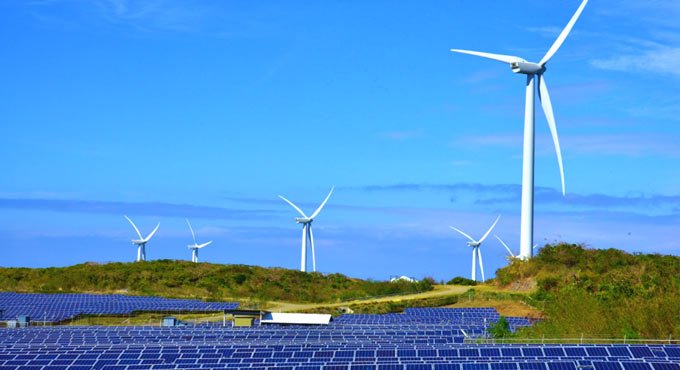Green finance to help in faster economic recovery: Mahua Acharya
Transport and electric mobility will also attract more financing

Hyderabad: India has set a target to reach 450 GW of renewable energy generation capacity by 2030 with an estimate that the country will require Rs 1.87 lakh crore ($2.5 trillion) from 2015 to 2030 for climate action. While India’s energy sector has been attracting substantial investments, meeting India’s climate goals will require a proportionate investment increase at sectoral level, says an expert.
Given current rates of penetration and the overall health of the sector combined with slowdown created by the Covid-19 pandemic, the government will have to find new and alternative ways to finance the transition and incentivise private sector participation to scale up investments, Climate Policy Initiative (CPI)’s Asia Director Mahua Acharya told Telangana Today.
CPI which carried out a study on the landscape of green finance in India for FY 2017-FY 2018 showed green finance flows of Rs 111 thousand crores ($17 billion) for FY 2017 and Rs 137 thousand crores ($21 billion) for FY 2018. PSUs with their largest share in energy efficiency and power transmission investments, accounting for 34 per cent, are set to play a key role.
“Globally power sector has been attracting lion’s share of green investments as 60% of carbon emissions come from the energy use and electricity sector. Power sector will continue to dominate financing in the coming years as well. Going forward, we anticipate transport and electric mobility will also attract more financing, as transport accounts for 20% of carbon emissions,” Mahua Acharya said.
Emerging opportunities
There have been significant investments in renewable energy in recent years, and in the coming years, there could be more investments happening in hybrid power, energy storage (with battery investments), grid stability to ensure firm renewable power, she noted.
On the EV front, she said, there will be financial flows into shared mobility and public transport. Several States will go for electric buses and private cab aggregators will shift towards electric fleet. High capital cost of electric vehicles still remains a challenge though batteries are becoming economical day by day.
CPI is now designing a domestic climate budgeting framework which will form the basis for comprehensive measurement of green finance in India in both public and private sectors. The team plans to come out with an online portal which will track and monitor financial flows within the green sectors.
The EU has stayed ahead in decarbonising. While countries have tried regulations and incentives to attract green efforts, there should be clear taxonomy on what is ‘green finance’. Through green economy policies, India can aim for economic recovery, she added.
Now you can get handpicked stories from Telangana Today on Telegram everyday. Click the link to subscribe.
Click to follow Telangana Today Facebook page and Twitter .
Related News
-
Haiti gang attack on journalists covering hospital reopening leaves 2 dead, several wounded
57 mins ago -
21 dead as Mozambique erupts in violence after election court ruling
1 hour ago -
Cartoon Today on December 25, 2024
9 hours ago -
Former Home Secretary Ajay Kumar Bhalla appointed Manipur Governor, Kerala Governor shifted to Bihar
10 hours ago -
Opinion: The China factor in India-Nepal relations
10 hours ago -
Editorial: Modi’s Kuwait outreach
10 hours ago -
Kohli and Smith will be dangerous and hungry: Shastri
11 hours ago -
Sharvari shares her TBR list of romantic book titles, suggested by fans
12 hours ago




